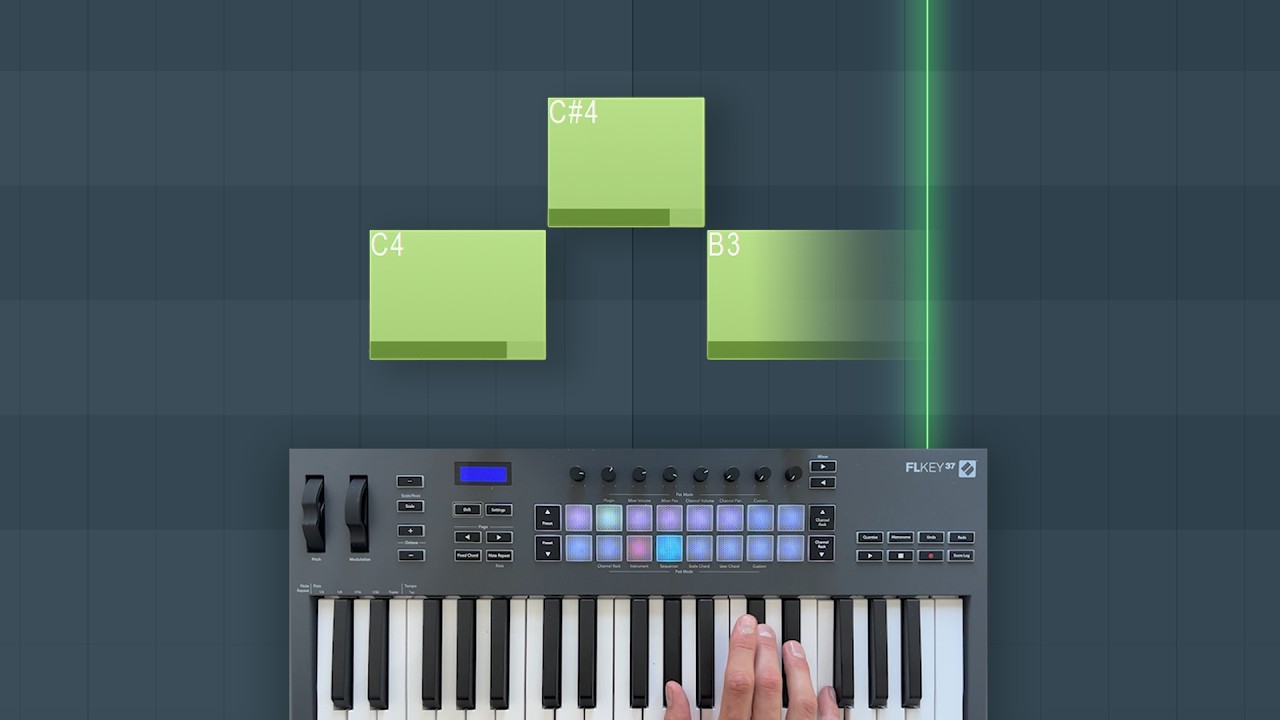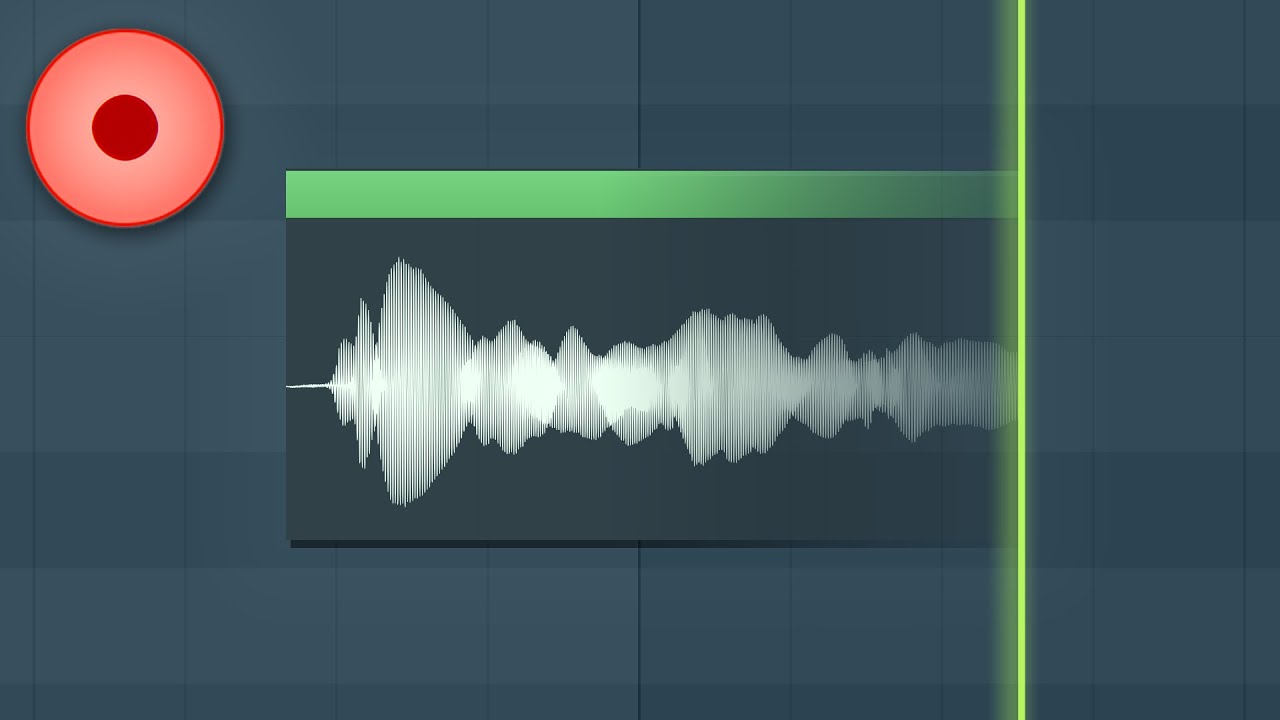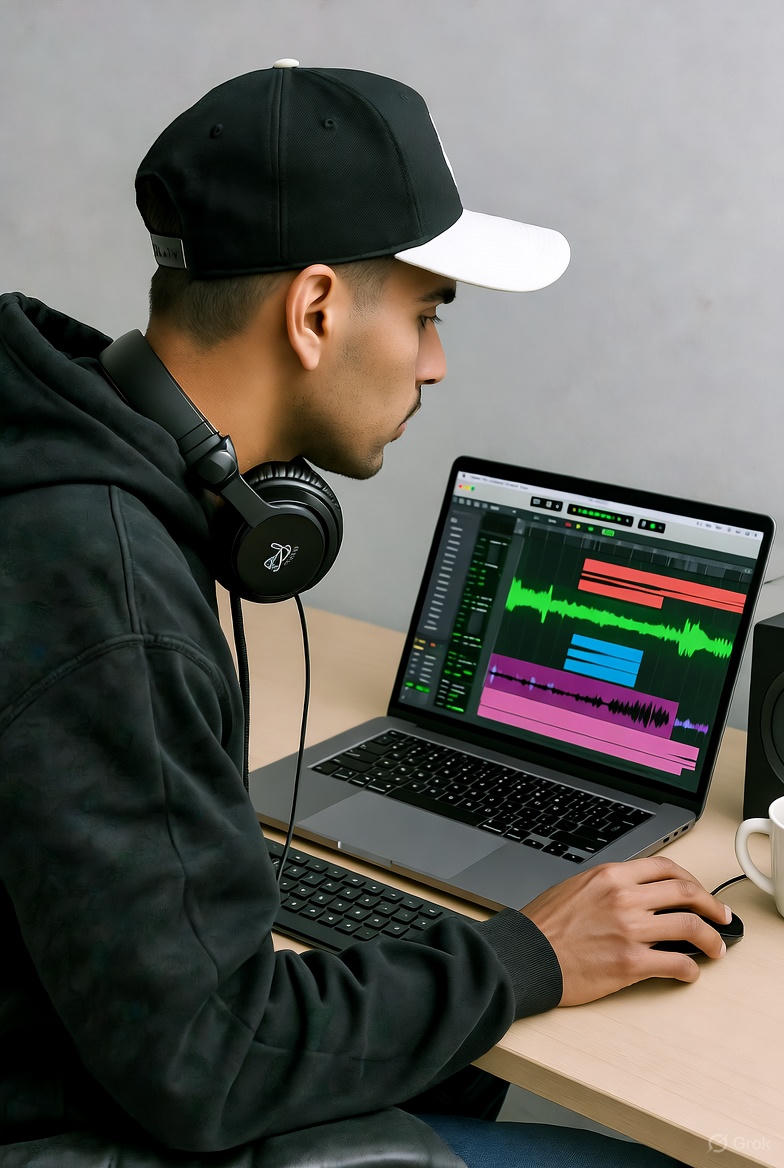!Let Us HELP YOU!
We have a lot of curated content on this blog.
Take this simple 20 second Quiz to Help You
Find The Exact Content You Are Looking For!
Drum machines have quietly taken over modern music studios, moving from obscure hardware to a producer’s secret weapon. Here is something wild. Nearly every top-charting pop, hip-hop, or EDM track in the last decade relies on programmed drum beats instead of live drummers. Yet most people think these machines just copy real drums. The truth is drum machines do a lot more than that and they have completely changed what’s possible in music.
Table of Contents
- What Are Drum Machines And Their Role In Music?
- The Importance Of Drum Machines In Music Production
- How Drum Machines Function: Key Features Explained
- Exploring The Benefits Of Using Drum Machines Compared To Live Drumming
- Real-World Applications: How Producers Use Drum Machines Today
Quick Summary
| Takeaway | Explanation |
| Drum machines enable precise rhythm creation. | They offer a level of control that allows for intricate, programmed beats across genres. |
| Cost-effective alternative to live drummers. | Using drum machines reduces the need for hiring musicians, cutting production costs significantly. |
| Flexibility in sound design enhances creativity. | Musicians can manipulate sounds in ways traditional drums cannot, allowing for unique musical expressions. |
| Democratizes music production for independent artists. | Accessible technology allows more musicians to create professional-quality tracks without extensive resources. |
| Essential tool across multiple genres. | From hip-hop to electronic music, drum machines play a vital role in modern music production styles. |
What are Drum Machines and Their Role in Music?
A drum machine is an electronic musical instrument designed to replicate and generate rhythmic patterns and percussion sounds. Unlike traditional drum sets played by human musicians, these digital devices allow producers to create precise, programmed beats across multiple musical genres.
The Evolution of Electronic Rhythm Generation
Drum machines emerged in the late 1960s and early 1970s, fundamentally transforming music production. Encyclopedia Britannica describes these devices as critical tools that enable musicians to generate consistent rhythms automatically, revolutionizing how musical compositions are created.
The primary functions of drum machines include:
- Generating electronic drum sounds with high precision
- Allowing programmable beat patterns and rhythmic sequences
- Providing consistent tempo and timing without human error
- Enabling complex rhythmic arrangements impossible with traditional instruments
How Drum Machines Work in Modern Music Production
Modern drum machines integrate sophisticated sound sampling and synthesis technologies. Producers can program intricate rhythmic patterns by selecting specific drum sounds and arranging them sequentially. These devices offer unprecedented control over musical rhythm, allowing artists to experiment with complex beat structures that would be challenging to perform manually.
From hip-hop and electronic dance music to pop and rock, drum machines have become fundamental tools for contemporary music creators. They provide musicians with incredible flexibility, enabling them to craft unique sonic landscapes and push traditional musical boundaries.
The Importance of Drum Machines in Music Production
Drum machines have transformed music production by providing unprecedented creative control and sonic possibilities for musicians across various genres. These electronic instruments represent more than just rhythm generators they are powerful tools that enable artists to craft unique musical expressions.
Creative Flexibility and Sound Design
Berklee College of Music highlights the critical role of drum machines in modern music composition. Producers can manipulate rhythm, texture, and sonic character in ways traditional drum sets cannot accommodate. They offer musicians the ability to:
- Create complex rhythmic patterns impossible with live drumming
- Experiment with unconventional sound design techniques
- Maintain perfect timing and consistency
- Layer multiple percussion sounds seamlessly
Economic and Practical Advantages
Drum machines provide significant economic benefits for music producers. Hiring live drummers can be expensive and logistically challenging, whereas these electronic instruments offer a cost-effective alternative. They eliminate the need for extensive recording studio time and multiple musician rehearsals, allowing producers to explore advanced beat-making techniques with minimal overhead.
Moreover, drum machines democratize music production. Independent artists and bedroom producers can now create professional-quality rhythmic tracks without extensive musical training or expensive equipment. This technological innovation has dramatically lowered barriers to entry in music creation, empowering a new generation of musicians to express their artistic vision.

How Drum Machines Function: Key Features Explained
Drum machines are sophisticated electronic instruments that transform musical rhythm generation through advanced digital technologies. These devices represent a complex intersection of sound design, programming, and musical creativity.
Core Technological Components
Britannica describes drum machines as intricate systems capable of generating and manipulating electronic percussion sounds. Their fundamental architecture includes several critical technological components:
- Sound generation engines for creating digital drum samples
- Programmable sequencers for arranging rhythmic patterns
- Real-time tempo and timing controls
- Multiple sound banks with customizable percussion sounds
Programming and Sound Manipulation Techniques
Modern drum machines offer musicians unprecedented control over rhythmic elements. Producers can program intricate beat patterns by selecting specific drum sounds and arranging them with microscopic precision. The ability to adjust parameters like pitch, decay, and volume allows for nuanced sound design that goes far beyond traditional percussion recording.
The most advanced drum machines integrate synthesized sound generation with sample-based technologies, enabling musicians to create unique sonic textures. These devices can emulate classic drum sounds or generate entirely new, experimental percussion profiles that push musical boundaries. Learn more about advanced beat-making techniques to fully leverage these powerful musical tools.
WEBSITE RESOURCES FOR MUSICIANS
Exploring the Benefits of Using Drum Machines Compared to Live Drumming
Drum machines have dramatically transformed music production by offering significant advantages over traditional live drumming.
These electronic instruments provide musicians and producers with unprecedented flexibility, precision, and creative potential that conventional percussion methods cannot match.
Cost and Logistical Efficiency
MDPI Applied Sciences research highlights the economic and practical benefits of drum machines. Unlike live drumming, which requires professional musicians, expensive recording equipment, and extensive studio time, drum machines enable producers to create high-quality rhythmic tracks with minimal investment. This technological approach dramatically reduces production costs and eliminates scheduling complexities associated with coordinating live musicians.

Key economic advantages include:
- Eliminating musician hiring expenses
- Reducing studio recording time
- Minimizing equipment and setup costs
- Enabling instant rhythm creation
Creative Flexibility and Sonic Exploration
Drum machines empower musicians to transcend the limitations of human performance. Producers can program rhythms that would be physically impossible for a single drummer, including complex polyrhythmic patterns, mathematically precise timing, and unconventional beat structures. Learn advanced beat-making techniques to maximize these creative possibilities.
Moreover, these devices offer unparalleled sound manipulation capabilities. Musicians can adjust individual drum sound parameters, layer multiple percussion elements, and experiment with synthesized and sampled sounds in ways live drumming cannot replicate. This technological approach transforms rhythm creation from a performance-based activity to a nuanced form of sound design and musical composition.
Real-World Applications: How Producers Use Drum Machines Today
Drum machines have become indispensable tools across diverse musical genres, enabling producers to craft intricate rhythmic landscapes with unprecedented precision and creativity. Modern music production leverages these electronic instruments to push sonic boundaries and generate unique percussive experiences.
Genre-Specific Rhythm Generation
Artificial Intelligence Research demonstrates how contemporary drum machines integrate advanced computational technologies to revolutionize music production. Different musical genres require distinct rhythmic approaches, and producers utilize drum machines to meet these specialized requirements.
Key genre-specific applications include:
- Hip-hop: Creating crisp, syncopated beats with sharp attack characteristics
- Electronic dance music: Generating complex polyrhythmic patterns
- Pop: Developing consistent, radio-friendly rhythmic structures
- Experimental music: Exploring unconventional sound design techniques
Advanced Sound Manipulation Techniques
Modern producers employ drum machines not just as rhythm generators but as complex sound design instruments. They can manipulate individual percussion elements with microscopic precision, transforming standard drum sounds into entirely new sonic textures. Learn advanced beat-making techniques to understand these sophisticated approaches.
These electronic instruments allow musicians to layer multiple drum samples, adjust envelope parameters, and create hybrid sounds that blur the boundaries between traditional percussion and electronic music. By combining synthesized and sampled sounds, producers can develop signature rhythmic identities that distinguish their musical output in an increasingly competitive landscape.
This table summarizes how drum machines are used across different music genres, highlighting their purpose and application in modern music production.
| Genre | Drum Machine Usage | Typical Application |
| Hip-Hop | Creates crisp, syncopated beats with precise attack | Foundation of rhythm and groove |
| Electronic Dance | Generates complex polyrhythmic and energetic patterns | Drives danceable, repetitive structures |
| Pop | Develops consistent, radio-friendly beats | Ensures steady, polished commercial sound |
| Experimental Music | Explores unconventional rhythms and new sound design techniques | Pushes boundaries with innovative percussive sounds |
| Rock (modern) | Augments or layers with acoustic drums for hybrid rhythms | Adds electronic depth and consistency |
Transform Your Beat-Making with Professional Drum Machine Skills
Are you struggling to create the complex, polished rhythms discussed in Understanding Why Use Drum Machines in Music Production? Many producers face the same challenge—mastering drum machine technology and unlocking creative potential to make professional beats in any genre. Your goal is clear: produce high-quality tracks with versatility and precision using the latest tools and techniques.
Now is the time to level up. Explore all the resources at How to Make Beats Blog, including expert DAW tutorials and mixing and mastering guides that show you how to bring out the best in your drum machine patterns. You get hands-on advice, gear reviews, and step-by-step guides tailored to modern music production. Visit How to Make Beats Blog now and start building unique, industry-ready beats today.
Frequently Asked Questions
What are the advantages of using drum machines in music production?
Drum machines offer significant advantages, including cost efficiency, perfect timing, and the ability to create complex rhythmic patterns that are difficult to achieve with live drumming. They also allow for creative experimentation with sound design.
How do drum machines differ from traditional live drumming?
Unlike traditional live drumming, drum machines allow for precise programming and sound manipulation. They can generate consistent rhythms, eliminate human error, and provide access to a wide range of customizable drum sounds.
Below is a table comparing key advantages and differences between drum machines and traditional live drumming in music production.
| Criteria | Drum Machines | Traditional Live Drumming |
| Timing & Precision | Perfect, programmable timing | Subject to human error and variation |
| Sound Customization | Highly customizable; manipulate pitch, decay, volume | Limited to physical drum kit and performer skills |
| Cost & Logistics | Cost-effective; minimal equipment, no musician hiring needed | Expensive; requires session fees and studio setup |
| Creative Possibilities | Enables complex, experimental, or impossible rhythmic patterns | Limited by human ability and standard techniques |
| Accessibility | Accessible to solo, independent, or home producers | Requires skilled drummers and professional studios |
| Genre Versatility | Widely used from hip-hop to EDM and experimental genres | Common in rock, jazz, and acoustic genres |
Can I create professional-quality tracks using only a drum machine?
Yes, drum machines enable independent artists and bedroom producers to create professional-quality rhythmic tracks without the need for live musicians or expensive recording equipment, making them an essential tool for modern music production.
What genres of music commonly use drum machines?
Drum machines are widely used across various genres, including hip-hop for crisp beats, electronic dance music for complex patterns, pop for consistent rhythms, and experimental music for unique sound explorations.
Recommended
- Why Master Your Beats: Understanding the Art of Sound – How To Make Beats Blog
- EDM – How To Make Beats Blog
- Dan – Site Mod – How To Make Beats Blog



